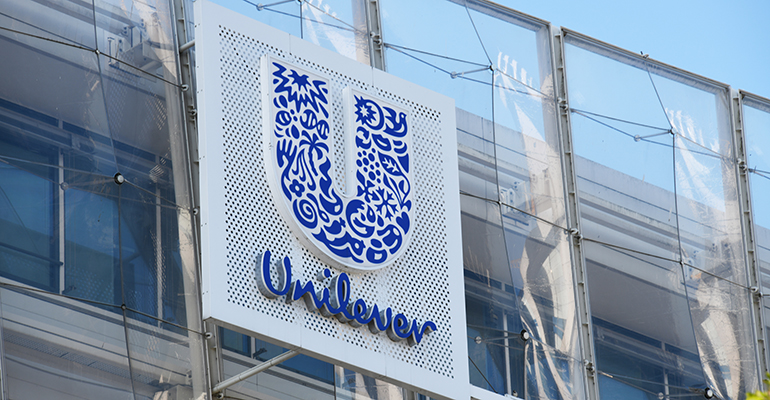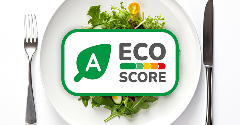News
Unilever promises living wages to suppliers' employees
1 Feb 2021In its effort to create a “more equitable and inclusive society” Unilever is committing to a new set of corporate goals, including ensuring that by 2030, all employees of suppliers that directly provide goods and services to earn a living wage or income as well as spending €2 billion annually by 2020 with suppliers owned by underrepresented groups.
Promising a living wage to the employees of suppliers is a novel initiative in the CPG space and it expands on the British company’s policy that requires its 65,000 direct suppliers to pay legal minimum wages to workers. Internally, Unilever already provides a living wage to its own employees.

Unilever has not explicitly defined what will constitute a living wage, but it said the figure is a sum that allows people to afford a decent standard of living, covering a family’s basic needs: food, water, housing, education, healthcare, transportation, clothing; and includes a provision for unexpected events.
The dedication of Unilever to this initiative was underscored by their chief human resources officer Leena Nair who told the BBC in a statement that suppliers not paying their employees according to these new standards may lose their contracts with the firm.
The 190 countries in which Unilever operates are many of the same ones that are continually criticized for working conditions, so increasing wages is likely to have a significant impact on employees’ standard of living. In Côte d’Ivoire, where Unilever sources cocoa for its Magnum ice cream brand, CNN Business cited data from the Global Living Wage Coalition showing that a living wage would be a 68% increase over the national minimum wage recorded in the country for 2020.
Aside from just augmenting the funds in workers’ pockets, higher wages have also been shown to have additional benefits, including retention of skilled workers and more productive work, a result that could benefit Unilever as competition to attract workers to food and beverage manufacturing increases.
Even if fulfilling these promises cost the company additional money, a spokesperson told CNN Business that the expense will be "absorbed in the value chain." Long term, the company said that it hopes to make a living wage the baseline pay rate for workers in the countries in which it operates.
Additionally, this move is likely to appeal to consumers who are increasingly interested in supporting companies that align with their values. To complement this move, Unilever will also look to support suppliers that are small and medium-sized businesses owned and managed by women, under-represented racial and ethnic groups, people with disabilities and LGBTQI+ populations.
Related news

UK Government overhauls childhood obesity strategy
21 Nov 2025
The UK Government has announced a new package of measures designed to reverse the nation’s childhood obesity epidemic following the release of statistics revealing the scale of the crisis.
Read more
How younger consumers are redefining ingredient choices and rejecting brand loyalty
18 Nov 2025
Gen Z and millennial consumers’ preferences for transparency, functionality, and purpose are “redefining the very nature of consumption itself”, says SPINS.
Read more
New UPF standard hoped to offer consumers ‘coherence and clarity’
10 Nov 2025
Ingredients companies are being urged to enter “a new era of partnership and innovation” following the launch of the industry’s first non-UPF verification scheme.
Read more
Ingredient quantities mislabelled on popular protein bars, independent tests show
5 Nov 2025
Some popular protein bars contain more fat, carbs, and/or sugars than claimed on their labels, independent nutrition testing reveals.
Read more
Does promoting protein content push up plant-based sales?
27 Oct 2025
Promoting the protein content of meat-free products is a more effective sales strategy than adding carbon labels, a study of UK bakery chain Greggs suggests.
Read more
Supplement shoppers seek storytelling and science-backed suppliers
17 Oct 2025
Supplement consumers want specific health benefits that focus on prevention and personalisation, according to data from HealthFocus International.
Read more
Food fraud risks rise as brands fight economic and environmental headwinds
10 Oct 2025
Climate change, geopolitics, regulations, and demand for sustainable products are pushing up food fraud and adulteration risks, warns a world-leading food fraud expert.
Read more
The growing appeal of nutrient-dense food claims
2 Oct 2025
Nutrient-dense claims are rising as consumers reject the “empty calories” of UPFs in favour of products that provide meaningful nutrition with every calorie, Mintel data shows.
Read more
What does MAHA mean for the US nutraceutical industry?
30 Sep 2025
Industry associations have expressed mixed reactions to new policy directions on health and nutrition under the Make America Health Again (MAHA) banner.
Read more
Eco-Score labels improve consumer identification of sustainable foods
22 Sep 2025
The presence of a front-of-pack Eco-Score label improves consumers' accuracy in identifying sustainable food products from 52% to 72%, a study suggests.
Read more